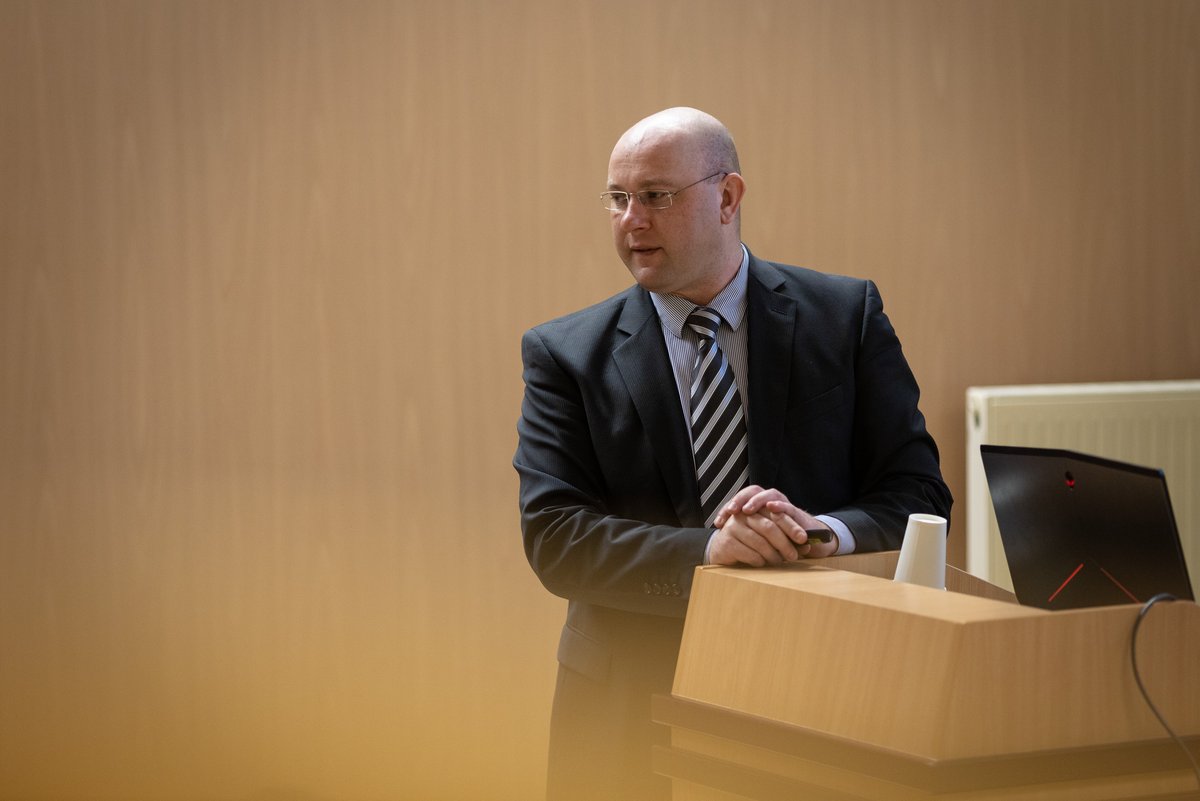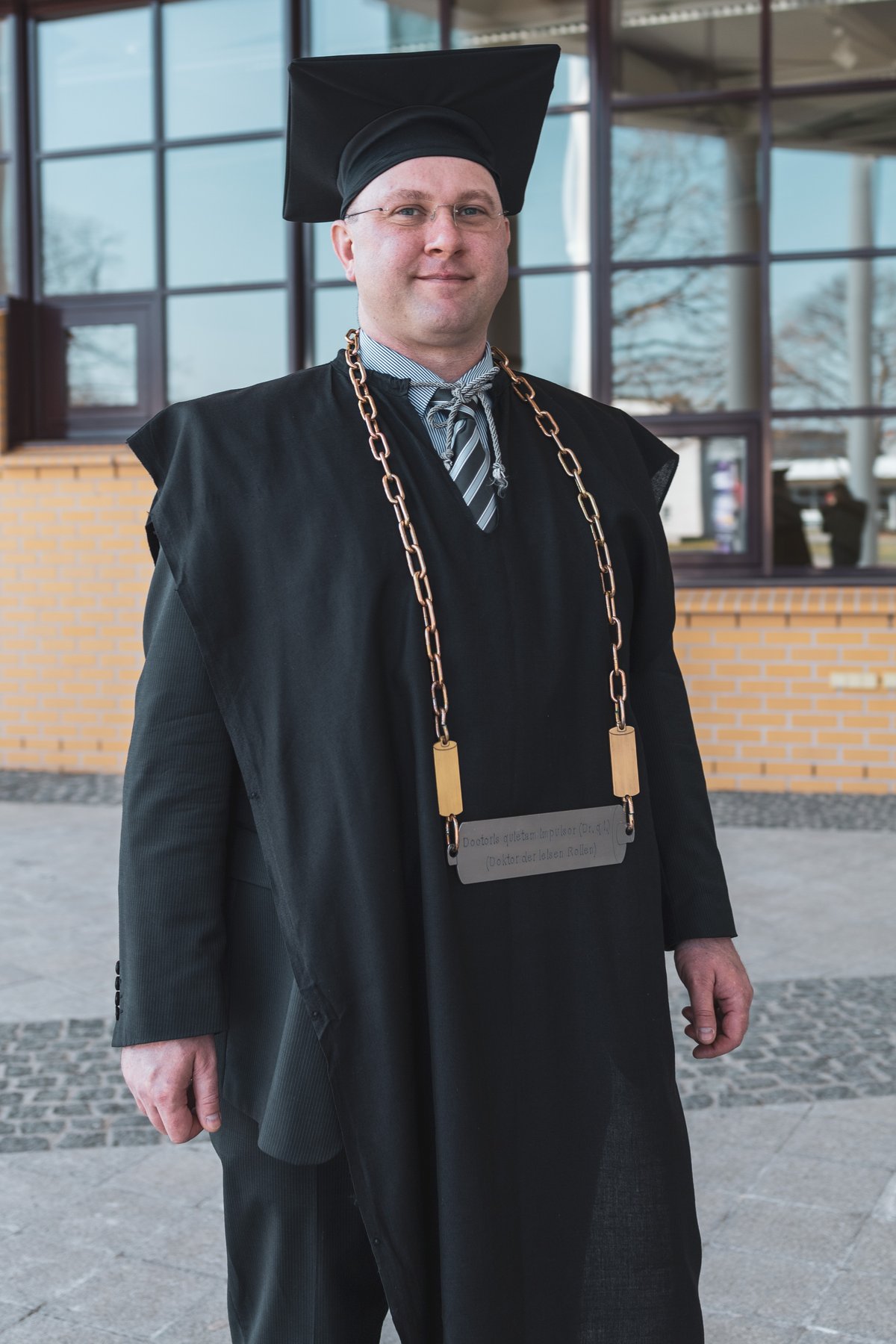Interview with BTU Alumnus Thomas Rieder (Maschinenbau)
Thomas Rieder studied mechanical engineering in Senftenberg and completed his doctorate at the BTU in the machine tool department of Prof. Sylvio Simon on the topic of "Investigations into the effect of unbalance on the sound emission of idlers". In the process, he also worked in the team of the worldwide unique idler test stand at the Senftenberg campus. Appropriately designed idlers are crucial for belt conveyor systems to function as quietly and reliably as possible. At the test stand, these can be examined for their mechanical and acoustic properties with scientific precision. Through his research, he was able to prove that imbalances are not the cause of increased noise emissions from idlers.
Hello Thomas, first of all congratulations on passing your doctorate. How did you come to do it and what was it about the topic that excited you the most?
Thank you very much. I was involved in the "idler roller test rig project" since 2009. We were able to gain a lot of knowledge on the subject of idlers and noise emission with the help of the test rig and publish it. In Dr.-Ing. Täschner's dissertation, the task was to once again critically examine the relationship between unbalance and acoustic emission in idlers of belt conveyor systems. I had a starting point and now had to devise and carry out experiments. The joy arose automatically when the results showed that there is no correlation between the unbalance and the acoustic emission in idlers.
You also previously studied mechanical engineering in Senftenberg. Unfortunately, it is still rare for alumni with a degree from a technical college to do a doctorate. How did you perceive the challenge and do you have any tips for other alumni who want to follow your example?
The development of the acoustic idler test by me, the completion of the master's degree and the first doctorate on this topic by Dr.-Ing. Täschner, first brought the perspective of a doctorate into my view. In connection with my doctorate, it was certainly a great advantage to have been employed at the university or at IURS e.V. in order to be able to work directly on the idler test rig. The long-term cooperation with LEAG and the various idler manufacturers also contributed to achieving the goal. The will to investigate the problem more deeply was given. The challenge then was to convince ourselves that it could be done. My recommendation is, if the prerequisites are there and you have a good feeling, do it. With a PhD, you learn many other skills and challenges to master besides scientific work. Can you please say something about how the doctorate has changed you and which skills in particular you were able to strengthen. I had to learn to adjust my time management between work, private life and the doctorate I wanted to do. Especially the last three months before submission were very intensive and time-consuming. There was a lot to master like critically questioning literature and sources as well as my own work, evaluating the results from the experiments, formulating descriptions and giving talks. My lectures on the subject led to controversial discussions in the auditorium. You have to withstand that first. Since I was able to refer to my measurement results, it became easier for me to defend my point of view from time to time. You grow with the challenge.
Due to its size, the Senftenberg campus is particularly familiar with close contacts to professors and lecturers. How did you perceive this and how could it possibly even help you with your studies and doctorate?
Yes, that is true. If you had any worries, needs or problems, there was always a short line of communication. As a matter of course, you could also regularly ask emeritus professors for advice. Within the group of research assistants who wanted to do a doctorate, there was also a lively exchange in the form of a doctoral college. In this way, one could constantly help each other to make progress.
What's next for you now that you've finished your doctorate?
I have found a job at DEKRA and am going back to Frankfurt/Oder.


